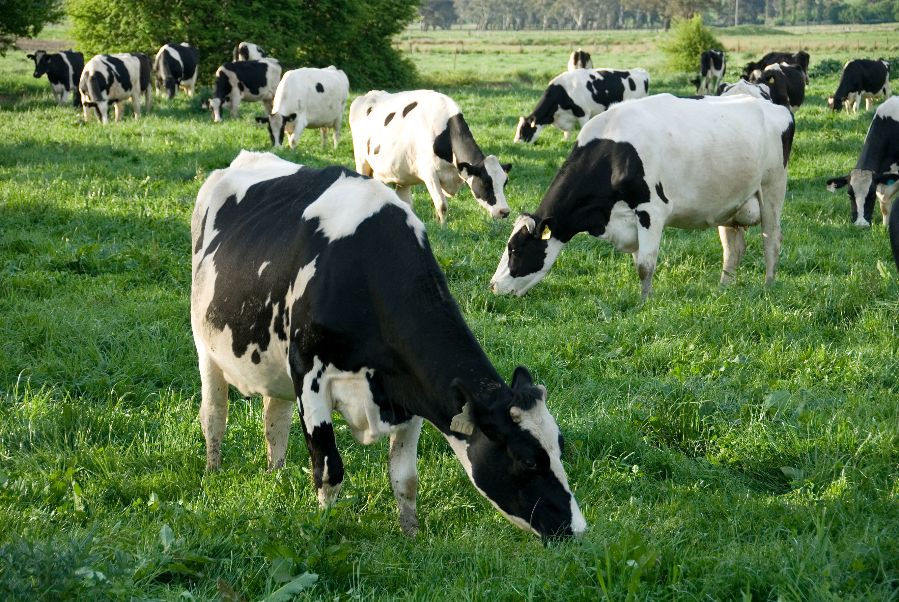
Safety in the farming industry

A recent prosecution of a farmer in South Wales brought into sharp focus the hazardous nature of working in farming. Video footage taken by a neighbour captured the moment the farmer allowed one of his grandchildren to ride in his tractor as he fed cattle. He had already been issued with a prohibition notice by the Health & Safety Executive after he admitted to inspectors he allowed his pre-teen grandchildren to ride in his tractor.
Potential safety risks on farms
Farming is a hazardous industry. Farmers and farm workers work with dangerous machinery, vehicles, chemicals, livestock, at height or near pits and silos. They are exposed to the effects of bad weather, noise, vibration, and dust. The risks include family members working at the farm and children living at or visiting the farm. People often believe that farm children understand farm risks, but most children who die in farm incidents are family members.
Farmers are responsible for undertaking a variety of potentially dangerous operations across large tracts of land which can be easily accessed (both legally and illegally) by members of the public. In industrial environments employers have absolute control of the working environment and can recruit workers to specialise in particular roles. In contrast farmers, often working alone, have to develop the skills to undertake a variety of roles, in an environment over which they have limited control.
Agricultural employers’ legal responsibilities
Employers are required by law to protect their employees and others from harm. Farmers are responsible for a lot of high-risk operations, however the basic steps required to mitigate those risks are the same as for any other employer. Under the Management of Health and Safety at Work Regulations they must:
- Identify what could cause injury or illness in the course of their business operations (hazard);
- Decide how likely it is that someone could be harmed and how seriously (the risk);
- Take action to eliminate the hazard, or if this isn’t possible, control the risk.
Having identified the risks, farm employers can then obtain detailed guidance on the steps they should take to eliminate, or at least mitigate, those risks. The Health & Safety Executive website provides an array of farming specific advice, including guidance on Farm Vehicle Safety, Machinery Safe Use, Machinery Maintenance, Work at Height, Livestock, Electricity, Child & Public Safety, Building Work, Training and Skills, and Chainsaws.
Everyone has the right to work in a healthy and safe environment. If workers have concerns about risks arising in the course their work then they should raise those concerns with their employer, or the person in control of their workplace. If their employer, or person exercising control, fails to address those concerns, then the worker should report their concerns to the Health & Safety Executive. Workers are protected by a statutory right to report health and safety concerns to the HSE. The Health & Safety Executive has a variety of powers to compel employers, and others, to take any steps necessary to keep workers and others safe from harm.
Agricultural workers’ responsibilities
Farm workers also have a role to play in maintaining a healthy and safe working environment. Like all other workers, they should carry out their duties in accordance with their training and any safety instructions issued by their employer, or the person in control of the work. It is also essential that all safety incidents and near misses are reported to the employer, or person in control, so that they are put on notice to take preventative measures to protect workers’ health and safety. Accidents on farms should be clearly recorded in an accident book. Further the Reporting of Injuries, Diseases and dangerous Occurrences Regulations 2013 (RIDDOR 2013), puts duties on employers, the self-employed and people in control of work premises (the Responsible Person), to report certain serious farm workplace accidents, occupational diseases and specified dangerous occurrences (near misses).
The reporting of concerns, near misses, and accidents, also has a vital role to play in the event that the worst does happen and someone is injured in the farming workplace. Evidence of concerns raised, near misses, and accidents, is what we rely on to prove that an employer (or person in control) has breached their duty to take reasonable care for the safety of their workers.
If you have suffered an injury due to an accident in an agricultural work setting, please contact us for a confidential discussion.
Email Gordon Milligan
Call our personal injury claims team free on 0808 560 0872
Arrange a callback by using our enquiry form
Share this page
- Personal injury claims
- Our personal injury team
- How to make a personal injury compensation claim
- How to choose a personal injury solicitor
- Claim now
- Personal injury claim calculator
- How claims are valued
- Frequently asked questions
- Types of personal injury claim
- How to sue someone in the Scottish courts
- Recent successes
- Case studies
- Testimonials
- Injury Compensation Alliance

